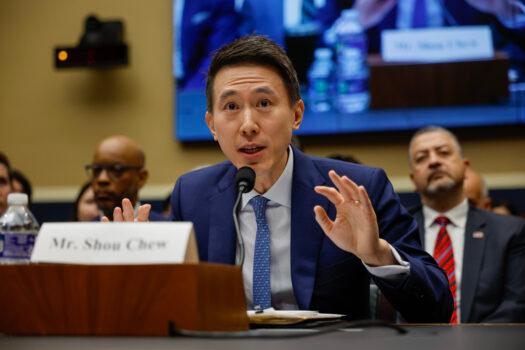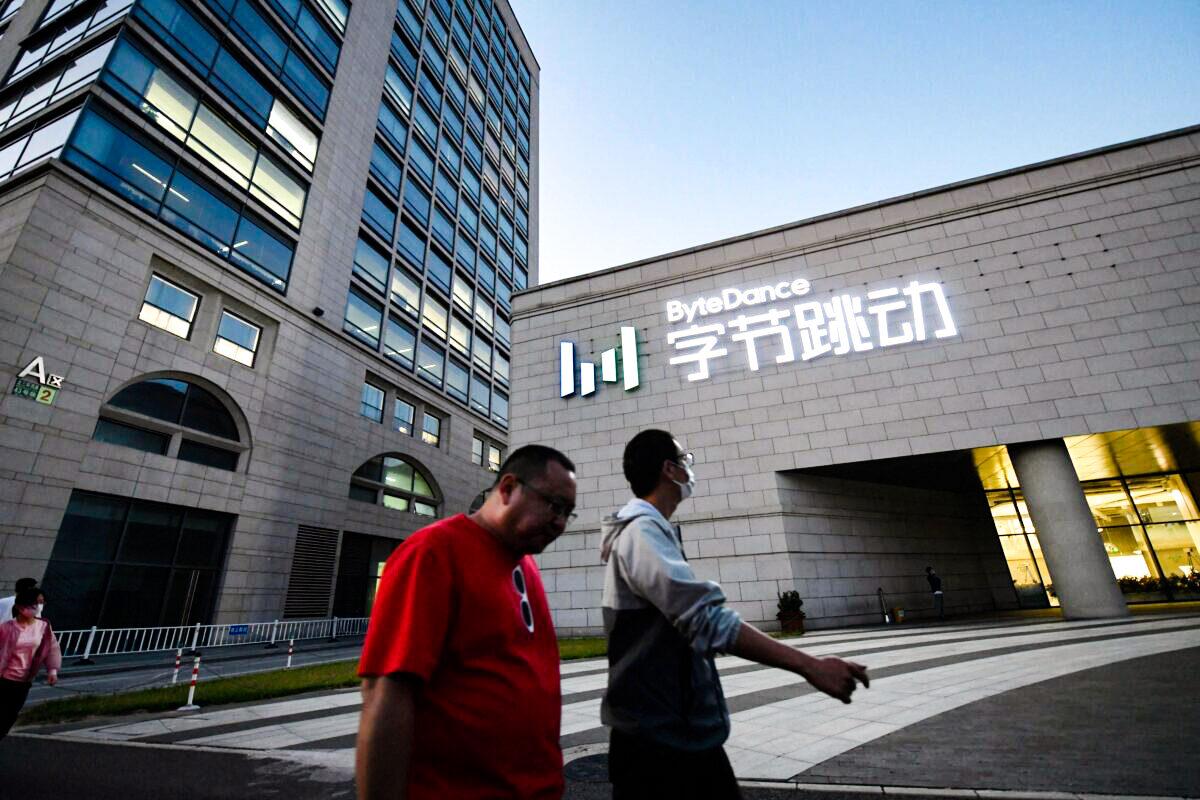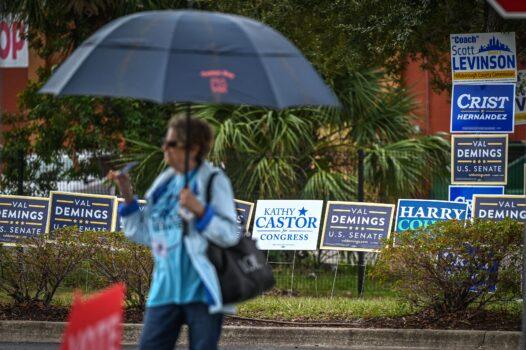Overseas Chinese companies have collected data on millions of Americans, which can be used by the Chinese Communist Party (CCP).
A recent lawsuit against TikTok’s parent company ByteDance has revealed that the highest authority over using this data rests with the CCP, allowing the Party to use this data as a weapon of unrestricted warfare to shape American elections and politics.
In a lawsuit filed this month in California state court, Roger Yintao Yu, a former executive at ByteDance, who was fired in 2018, said the CCP “maintained supreme access” to all data held by ByteDance, including information stored in the United States, according to the complaint.
This statement is at odds with TikTok CEO Shou Zi Chew’s testimony before the U.S. Congress at a hearing before the U.S. House Energy and Commerce Committee on March 23.
In his testimony, Chew claimed TikTok is not owned or controlled by the Chinese communist regime while denying that the regime has access to TikTok’s data.
In May, TikTok wrote a letter to the U.S. Congress, claiming that it has “has never shared” any U.S. user data with the Chinese communist regime and wouldn’t if requested to do so.
Last December, ByteDance admitted that its employees had improperly obtained data from U.S. TikTok users, including two Western reporters.
In the face of this evidence, TikTok unleashed the so-called “Project Texas,” a $1.5-billion effort to store all U.S. user data on servers owned and maintained by Oracle.

Chew tried to convince U.S. lawmakers that under the plan, the CCP would no longer have access to Americans’ data. However, Roger Yu’s court statement suggests that the CCP can still access TikTok’s data even if the server is located inside the United States.
Beijing Attempts to Sway US Politics
U.S. lawmakers’ concerns about TikTok are not just about data security. TikTok’s behavior in recent years has revealed the CCP’s ambition to use the social media app to sway the political landscape in the United States.On June 20, 2020, as Donald Trump’s re-election campaign was in full swing, he fell into a “pitfall” set by TikTok. Trump tweeted that almost one million people had requested tickets for his rally in Tulsa, Oklahoma. However, only 6,200 people showed up at the venue that day, which greatly weakened the morale of Trump’s campaign team.
It turned out that in the run-up to the free event, many TikTok users registered for the ticket but deliberately chose not to show up.

During the U.S. midterm elections in August 2022, TikTok again launched a feature called “Election Center” to connect users with authoritative information and sources in more than 45 languages, including English and Spanish. The election information and voting assistance programs were provided by TikTok’s partners, such as NASS (the National Association of Secretaries of State), Ballotpedia, the Center for Democracy in Deaf America (for deaf voters), the Federal Voting Assistance Program (overseas voting), the Campus Vote Project (students) and Restore Your Vote (people with past convictions).
This alarmed U.S. lawmakers.
Data Enables CCP
When users select their state and click “Register to Vote,” TikTok can capture a wealth of data about their location, interest in voting, age, and political leanings, U.S. web magazine The Federalist said in an Op-Ed on Aug. 22, 2022.Tristan Harris of the Center for Humane Technology explained to The Federalist Radio Hour in more detail how the CCP would make use of the data.
It “can look at all the voting districts in the swing states and … can basically look at people’s sentiments with an AI that calculates what people’s opinions are in all the key voting areas,” he said.
Anders Corr, the founder of Corr Analytics Inc. and publisher of the Journal of Political Risk, told The Epoch Times on May 17 that the CCP usually prefers left-leaning political parties as their policies are more friendly to Beijing.
“The CCP typically prefers parties to the left of center around the world, whether that be Democrats in the United States, Liberals in Canada, or Labor in the United Kingdom and Australia,” Corr said. “They support parties that give China easy access to markets and that do not support democracy and human rights in places like Taiwan, Hong Kong, Tibet, and Xinjiang.”

TikTok is not the only CCP-linked company that can help Beijing influence U.S. elections; all overseas Chinese companies can be a secret weapon to help the CCP collect data from the American public and influence U.S. politics. Shein and Temu, the two e-commerce sites that have recently become popular in the United States, are such examples.
Unrestricted Warfare
Beijing is replicating its operational model of influence in the Pacific Rim on U.S. soil, trying to promote a narrative in its favor in the media and promote pro-CCP politicians in Washington.According to the U.S. Foreign Agents Registration Act (FARA) report to the Department of Justice, the CCP has spent more money than any other country to influence U.S. politics in the past six years ending in 2022, amounting to $280 million.
These are all part of the CCP’s unrestricted war, a concept developed by former Chinese Air Force Majors General Qiao Liang and Wang Xiangshui in their 1999 book “Unrestricted Warfare.” They claim unrestricted warfare employs all means, including economic warfare, cyber attacks, and terrorism.
In August 2016, Qiao Liang released a revised version of the book, which expands the scope of unrestricted warfare to include cyber warfare, resource warfare, media warfare, financial warfare, and cultural warfare. The book says that today’s battles have gone far beyond uniformed soldiers and aircraft and artillery, and that the CCP must militarize all areas and must actively engage in all areas of invisible warfare as soon as possible.
In the book, Qiao said that unrestricted warfare is “a war that transcends all boundaries and limits … by all means … and beyond all political, historical, cultural, and moral constraints.”





